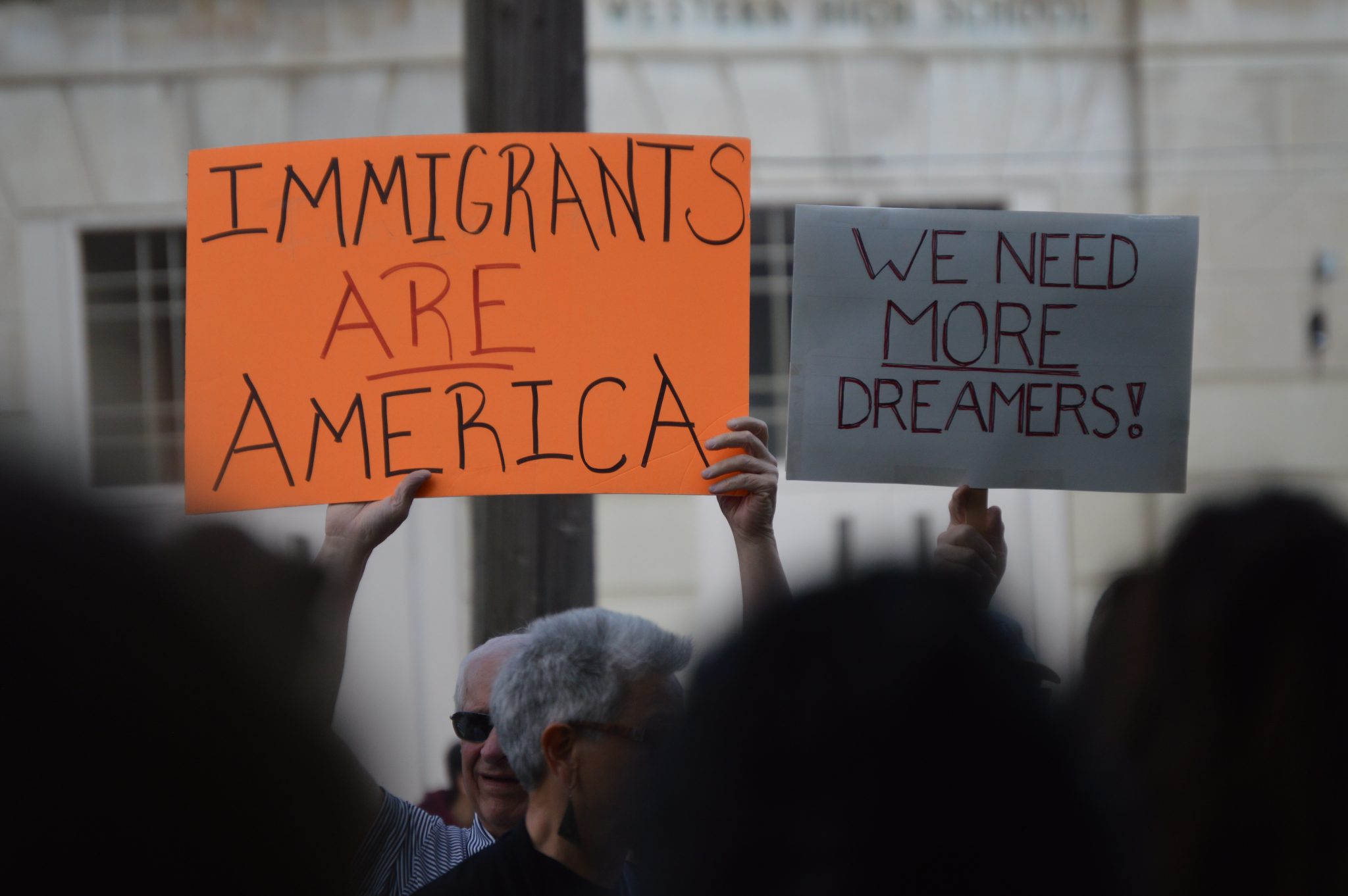
Two constitutional and immigration law experts discuss whether the Constitution has the power to influence U.S. immigration policy.

Your browser does not support the audio element.
For centuries immigration has been synonymous with the United States, but what does the Constitution actually say about who can and can’t enter the country? Law professors Christina Rodriguez and Ilya Somin talk about the ways in which the founding document could hinder or empower immigration policy reform.
“The Constitution itself says very little about immigration … [But] the power of Congress to regulate [immigration] is relatively uncontroversial today.” –Cristina Rodriguez, Yale University Law School
Cristina Rodriguez is a professor at Yale University Law School and author of “The President and Immigration Law.” She says to the founders and other early American lawmakers, immigration was not thought of in the same way as today. “Immigration from the very beginning was used as a political tool to keep people thought not to be loyal to the United States from coming into the country,” Rodriguez says.
Rodriguez says with little constitutional intervention, immigration policy is mostly in the hands of the executive and legislative branches. “The Constitution itself says very little about immigration … [But] the power of Congress to regulate [immigration] is relatively uncontroversial today.” Because immigration policy hasn’t changed much in 40 years, Rodriguez says the U.S. is operating out of a system that does not have the capacity to adapt to the changing world. “There are very prescribed ways in which people can enter the United States … Expanding the paths by which people might enter could improve fairness.”
“If we make it easier for people for people who want to live and work here to enter … that would eliminate the illegal immigration problem.” –Ilya Somin, Antonin Scalia Law School at George Mason University
Ilya Somin is a professor at the George Mason University’s Antonin Scalia Law School and author of “Free to Move: Foot Voting, Migration, and Political Freedom.” He says most of the earliest immigration policies in the U.S. were exclusionary rules adopted by state governments. “It’s notable that nowhere in the Constitution is there listed any power of the federal government to restrict immigration … It was only in 1889 in the Chinese exclusion cases that the Supreme Court ruled that there was such a power.”
Somin believes the executive branch needs to be limited in its power over immigration policy, because restrictions depend largely on who the president is at the time. “I think the ultimate goal, which I don’t think is going to be achieved any time soon, is to shift the system … so that people should be allowed free entry.” Illegal immigration to the United States is prevalent because it’s extremely difficult to enter any other way, which is why Somin says the system should be liberalized. “If we make it easier for people for people who want to live and work here to enter … that would eliminate the illegal immigration problem.”
This summer, we invite you to get involved as we explore our nation’s founding document.
WDET strives to make our journalism accessible to everyone. As a public media institution, we maintain our journalistic integrity through independent support from readers like you. If you value WDET as your source of news, music and conversation, please make a gift today.
Dynamic and diverse voices. News, politics, community and the issues that define our region. Hosted by Pulitzer Prize-winning journalist Stephen Henderson, Detroit Today brings you fresh and perceptive views weekdays at 9 am and 7 pm. View all posts
Nora Rhein works with the production team on "Detroit Today with Stephen Henderson" on 101.9 WDET. She's very proud to be a public radio nerd. View all posts